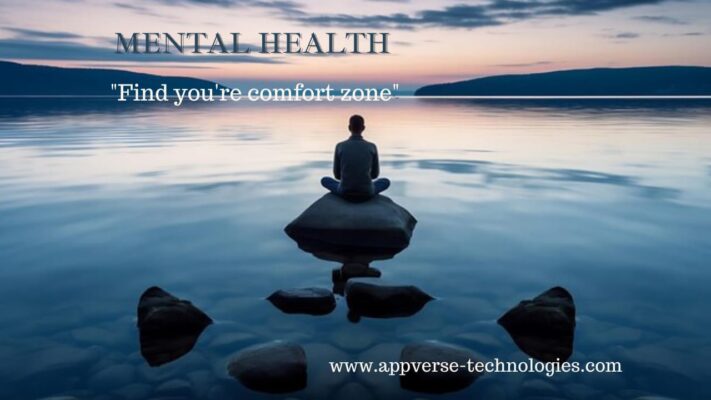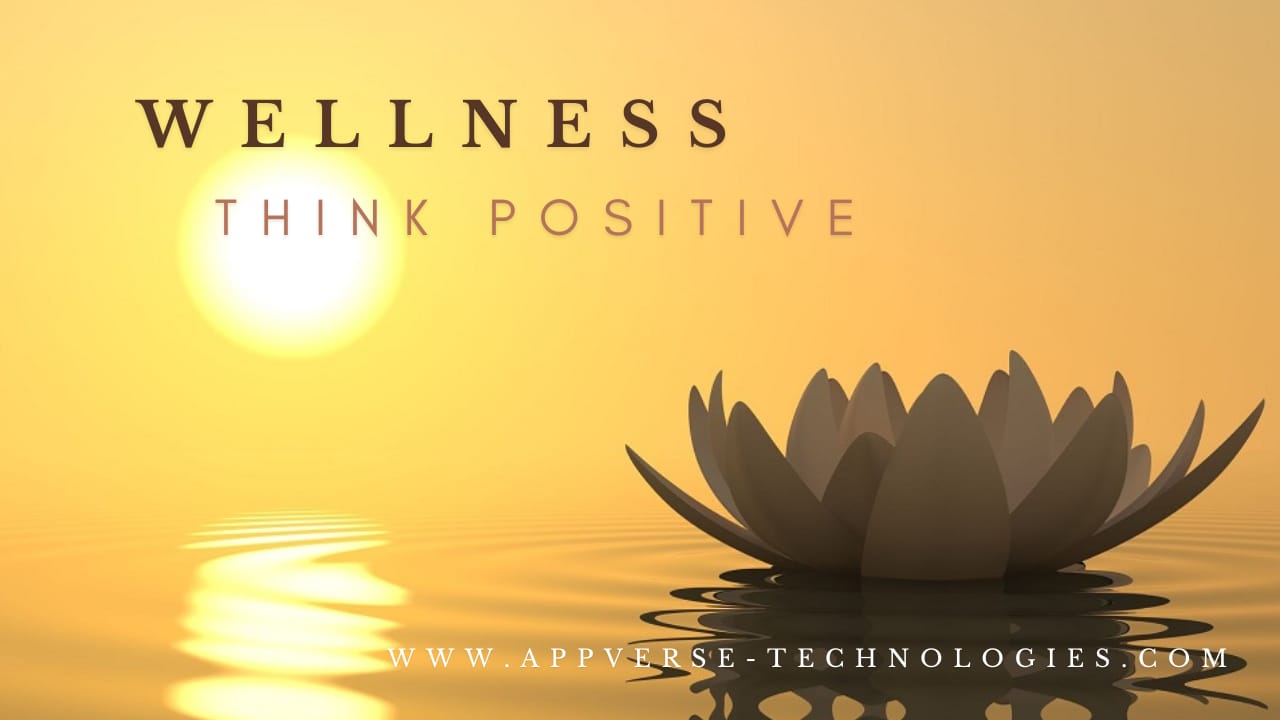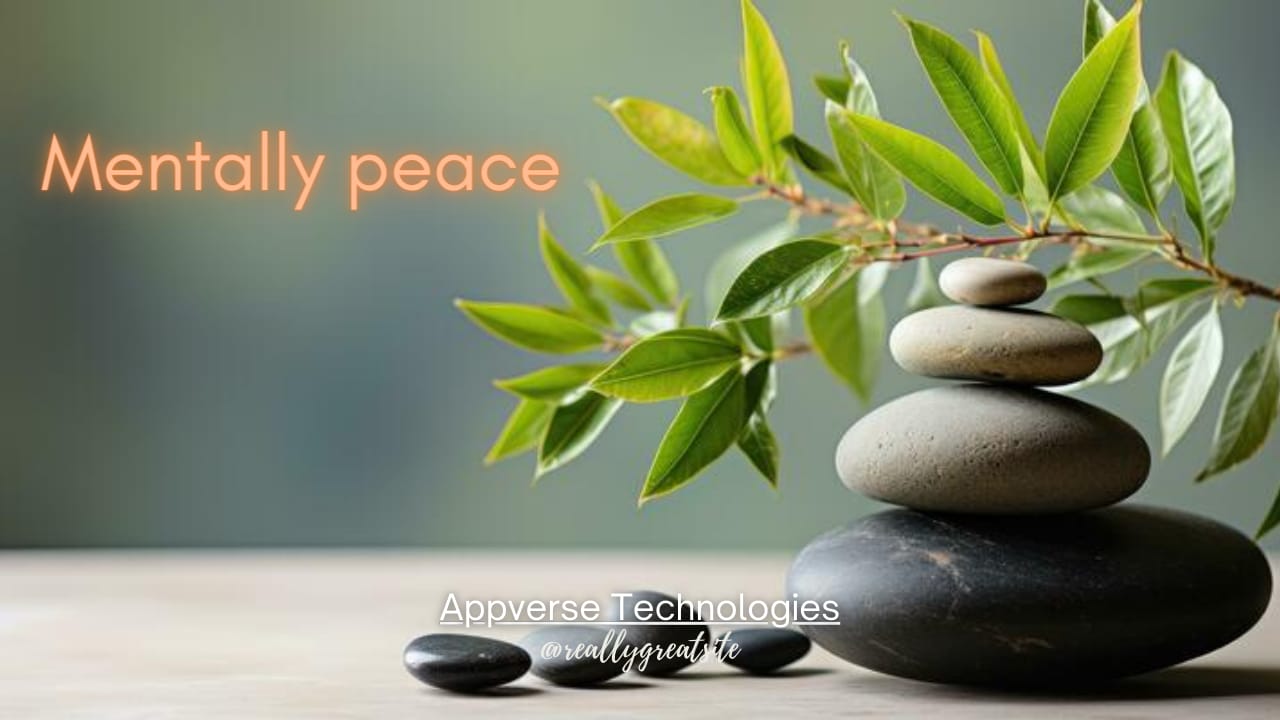
Mental health refers to the well-being of our emotional, psychological, and social functioning. It affects how we think, feel, and act, and determines how we handle stress, relationships, and daily life. Good mental health is characterized by:
- Positive self-image
- Ability to cope with stress
- Healthy relationships
- Adaptability to change
- Resilience in the face of challenges
- Ability to manage emotions
- Clear thinking and problem-solving skills
- Good physical health
Mental health is just as important as physical health, and it’s essential to prioritize it by:
- Seeking help when needed
- Practicing self-care
- Building strong relationships
- Engaging in activities that bring joy
- Taking care of physical health

Cultivating a Positive Self-Image: The Key to Unlocking Your Potential
Your self-image is the mental picture you have of yourself, influencing how you think, feel, and behave. A positive self-image is essential for achieving success, happiness, and well-being. In this blog post, we’ll explore the importance of cultivating a positive self-image and provide practical tips on how to do so.
Why is a Positive Self-Image Important?
- Boosts Confidence: A positive self-image helps you feel capable and confident, leading to greater success in personal and professional life.
- Improves Mental Health: A positive self-image reduces stress, anxiety, and depression by promoting self-acceptance and self-compassion.
- Enhances Resilience: A positive self-image helps you bounce back from setbacks and failures, fostering resilience and perseverance.
- Fosters Healthy Relationships: A positive self-image enables you to build strong, healthy relationships based on mutual respect and trust.
How to Cultivate a Positive Self-Image
- Practice Self-Acceptance: Embrace your strengths, weaknesses, and imperfections.
- Challenge Negative Self-Talk: Replace critical inner dialogue with positive affirmations.
- Focus on Your Strengths: Celebrate your achievements and talents.
- Set Realistic Goals: Break goals into achievable steps, building confidence and competence.
- Surround Yourself with Positivity: Seek supportive relationships and inspiring environments.
- Practice Self-Care: Take care of your physical, emotional, and mental well-being.
- Embrace Your Uniqueness: Celebrate what makes you different.
- Forgive Yourself: Let go of self-criticism and mistakes, practicing self-compassion.
Conclusion
Cultivating a positive self-image takes time and effort, but it’s worth it. By practicing self-acceptance, challenging negative self-talk, and focusing on your strengths, you can develop a positive self-image that unlocks your potential and sets you up for success and happiness. Remember, you are unique, capable, and deserving of love, respect, and happiness. Embrace your awesomeness and shine!

Here are some strategies to help you cultivate mental peace:
- Mindfulness meditation: Regular mindfulness meditation practice can calm your mind and reduce stress. You can start with guided meditation apps like Headspace or Calm.
- Gratitude practice: Reflect on things you’re grateful for each day, no matter how small they may seem. This helps shift your focus to the positive aspects of your life.
- Self-reflection: Regularly take time to understand your thoughts, emotions, and behaviors. Identify patterns and areas for improvement.
- Grounding techniques: Use your senses to ground yourself in the present moment, such as deep breathing, body scan, or focusing on your surroundings.
- Physical exercise: Regular physical activity reduces stress and anxiety by releasing endorphins, also known as “feel-good” hormones.
- Connect with nature: Spend time in nature, as it can help calm your mind and promote a sense of peace.
- Healthy sleep habits: Prioritize getting enough sleep each night to help regulate your mental state.
- Healthy relationships: Nurture relationships with supportive people who promote positivity and well-being.
- Self-care: Make time for activities that bring you joy and relaxation, such as reading, listening to music, or taking a relaxing bath.
- Practice forgiveness: Let go of grudges and forgive yourself and others to release mental burdens.
- Set boundaries: Establish healthy limits with others to protect your mental energy and time.
- Seek professional help: If you’re struggling with persistent mental health issues, consider seeking guidance from a mental health professional.

Understanding Stress and How to Break Free from Its Grip
Stress is a universal human experience that can affect anyone, regardless of age, gender, or background. It’s a natural response to challenging situations, but chronic stress can have severe consequences on our physical and mental well-being. In this blog, we’ll delve into the concept of stress, its effects, and practical strategies to help you manage and overcome it.
What is Stress?
Stress is the body’s natural response to a perceived threat or pressure. When we feel stressed, our body’s “fight or flight” response is triggered, releasing hormones like adrenaline and cortisol. This response was designed to help us react quickly to danger, but in today’s fast-paced world, stress can become a chronic condition.
Effects of Stress:
Chronic stress can lead to:
- Anxiety and Depression
- Insomnia and Sleep Disorders
- Digestive Problems and Weight Gain
- Weakened Immune System
- Cardiovascular Disease
- Mental Health Issues
How to Get Rid of Stress:
- Identify and Acknowledge: Recognize the sources of stress in your life and accept them.
- Exercise and Physical Activity: Regular exercise reduces stress hormones and releases endorphins.
- Mindfulness and Meditation: Practice mindfulness techniques to calm your mind and reduce stress.
- Time Management and Prioritization: Learn to say “no” and prioritize tasks to reduce workload.
- Social Support Network: Build a strong support system of family, friends, and colleagues.
- Self-Care and Relaxation: Engage in activities that bring you joy and help you relax.
- Healthy Eating and Sleep Habits: Fuel your body with nutritious food and get enough sleep.
- Seek Professional Help: If stress is impacting your daily life, consider seeking help from a mental health professional.
Additional Tips:
- Take regular breaks and practice deep breathing exercises
- Engage in activities that challenge your mind, such as puzzles or learning a new skill
- Practice gratitude and reflect on positive experiences
- Limit social media and technology use before bedtime
Conclusion:
Stress is a natural part of life, but it doesn’t have to control your life. By understanding the sources of stress and implementing practical strategies to manage it, you can break free from its grip and live a happier, healthier life. Remember, taking care of your mental and physical well-being is essential to living a fulfilling life.

Unlocking Wellness: A Holistic Approach to a Happier, Healthier You
Wellness is more than just a buzzword; it’s a journey towards a balanced and fulfilling life. In today’s fast-paced world, it’s easy to get caught up in the hustle and bustle and neglect our own well-being. But what if we told you that prioritizing your wellness can lead to a happier, healthier, and more purposeful life? In this blog, we’ll explore the concept of wellness, its benefits, and practical tips to help you unlock your full potential.
What is Wellness?
Wellness is a multifaceted concept that encompasses physical, mental, emotional, and spiritual health. It’s not just about the absence of illness, but about cultivating a state of optimal well-being. Wellness is a journey, not a destination, and it requires effort, commitment, and self-care.
Benefits of Wellness:
- Improved physical health
- Enhanced mental clarity and focus
- Better emotional resilience
- Increased energy and productivity
- Stronger relationships and social connections
- Greater sense of purpose and fulfillment
Practical Tips for Unlocking Wellness:
- Mindfulness and Meditation: Start with just 5-10 minutes a day to calm your mind and reduce stress.
- Physical Activity: Find an exercise routine that brings you joy, whether it’s walking, yoga, or dancing.
- Healthy Eating: Focus on whole, nutritious foods that nourish your body.
- Sleep and Relaxation: Prioritize 7-8 hours of sleep and take breaks throughout the day.
- Social Connection: Nurture relationships with loved ones and build a supportive community.
- Personal Growth: Set goals and pursue activities that bring you joy and fulfillment.
- Self-Care: Make time for activities that nourish your mind, body, and soul.
Conclusion:
Wellness is a journey, not a destination. By prioritizing your physical, mental, emotional, and spiritual health, you can unlock a happier, healthier, and more purposeful life. Remember, small steps today can lead to a brighter tomorrow. Take the first step towards unlocking your wellness and start living the life you deserve.

Prioritizing Mental Health and Wellness: A Journey Towards a Happier, Healthier You
Mental health and wellness are essential aspects of our overall well-being, yet they often take a backseat in our fast-paced lives. It’s time to shift the focus and prioritize our mental health, just as we do our physical health. In this blog, we’ll explore the importance of mental health, common challenges, and practical tips to cultivate wellness and resilience.
Understanding Mental Health:
Mental health encompasses our emotional, psychological, and social well-being. It affects how we think, feel, and behave, influencing our relationships, work, and overall quality of life. Mental health is not just the absence of illness but a positive state of being, where we can cope with challenges and live a fulfilling life.
Common Mental Health Challenges:
- Anxiety and Depression
- Stress and Burnout
- Trauma and PTSD
- Social Media and Technology Addiction
- Sleep Deprivation and Insomnia
Practical Tips for Mental Wellness:
- Mindfulness and Meditation: Regular mindfulness practice reduces stress and anxiety.
- Gratitude and Positivity: Focus on the good things in life and practice gratitude.
- Social Connection: Nurture relationships with loved ones and build a supportive community.
- Physical Activity: Regular exercise improves mood and reduces stress.
- Self-Care and Relaxation: Engage in activities that bring joy and help you unwind.
- Seek Professional Help: If struggling with mental health issues, seek guidance from a mental health professional.
Additional Strategies:
- Boundary Setting: Learn to say “no” and prioritize self-care.
- Healthy Sleep Habits: Establish a consistent sleep schedule and create a relaxing bedtime routine.
- Healthy Eating Habits: Fuel your body with nutritious food and stay hydrated.
- Leisure Activities: Engage in hobbies and creative pursuits that bring joy.
- Self-Compassion: Treat yourself with kindness and understanding, just as you would a friend.
Conclusion:
Prioritizing mental health and wellness is a journey, not a destination. By understanding the importance of mental health, acknowledging common challenges, and implementing practical tips, you can cultivate resilience and live a happier, healthier life. Remember, mental wellness is just as essential as physical health, and seeking help is a sign of strength, not weakness.

